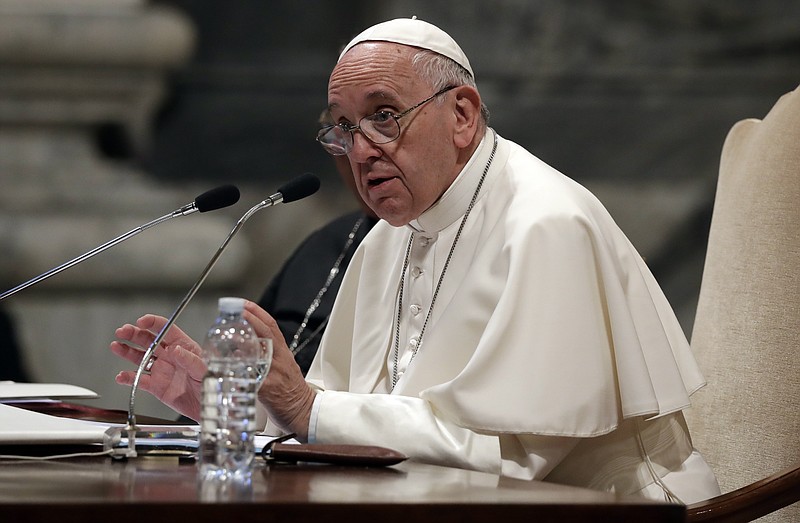VATICAN CITY (AP) — Pope Francis issued a groundbreaking new church law Thursday requiring all Catholic priests and nuns around the world to report clergy sexual abuse and cover-ups by their superiors to church authorities, in a new effort to hold the Catholic hierarchy accountable for failing to protect their flocks.
The law provides whistleblower protections for anyone making a report and requires all dioceses to have a system in place to receive the claims confidentially. And it outlines internal procedures for conducting preliminary investigations when the accused is a bishop, cardinal or religious superior.
Abuse victims and their advocates said the law was a step forward, but not enough since it doesn’t require the crimes to be reported to police and essentially tasks discredited bishops who have mishandled abuse for decades with policing their own.
It’s the latest effort by Francis to respond to the global sex abuse and cover-up scandal that has devastated the credibility of the Catholic hierarchy and his own papacy. And it provides a new legal framework for U.S. bishops as they prepare to adopt accountability measures next month to respond to the scandal there.
“People must know that bishops are at the service of the people,” said Archbishop Charles Scicluna, the Vatican’s longtime sex crimes prosecutor. “They are not above the law, and if they do wrong, they must be reported.”
The decree requires the world’s 415,000 Catholic priests and 660,000 nuns to tell church authorities when they learn or have “well-founded motives to believe” a cleric or sister has engaged in sexual abuse of a minor, sexual misconduct with an adult, possession of child pornography — or that a superior has covered up any of those crimes.
It doesn’t require them to report to police, however. The Vatican has long argued different legal systems make a universal reporting law impossible, and that imposing one could endanger the church in places where Catholics are a persecuted minority. But the procedures do for the first time put into universal law that victims cannot be silenced, that clergy must obey civil reporting requirements where they live, and that their obligation to report to the church in no way interferes with that.
The global victims group Ending Clergy Abuse, or ECA, said the Vatican shouldn’t hide behind the argument that mandatory reporting to police is a problem in some countries.
“The church should establish the law for reporting and justify the exception,” ECA’s Peter Iseley said. “Instead, they are using the exception as a pretext for not reporting sexual abuse to civil authorities and to keep abuse secret.”
If implemented fully, though, the Vatican could well see an avalanche of abuse and cover-up reports. The decree can be applied retroactively, meaning priests and nuns are now required to report even old cases of sexual wrongdoing and cover-ups — and enjoy whistleblower protections for doing so.
Previously such reporting was left to the conscience of individual priests and nuns.
Canon lawyer Kurt Martens called the new law “revolutionary” by making sex abuse of minors and adults, as well as official cover-ups, subject to mandatory reporting.
“We owe gratitude to Pope Francis for this universal law of the Church, ensuring that a victim who wishes to tell his or her story cannot be silenced,” Martens tweeted.
Anne Barrett Doyle of BishopAccountability praised some of the provisions but said they weren’t enough, primarily because there were no sanctions envisaged for violations, and because the process remained entirely internal.
“Bishops watching bishops does not work,” she said.
While there are no punitive measures foreseen for noncompliance, bishops and religious superiors could be accused of cover-up or negligence if they fail to implement the provisions or retaliate against priests and nuns who make reports against them.
The law defines the crimes that must be reported as: performing sexual acts with a minor or vulnerable person; forcing an adult “by violence or threat or through abuse of authority, to perform or submit to sexual acts”; and the production, possession or distribution of child pornography. Cover-up is defined as “actions or omissions intended to interfere with or avoid” civil or canonical investigations.

